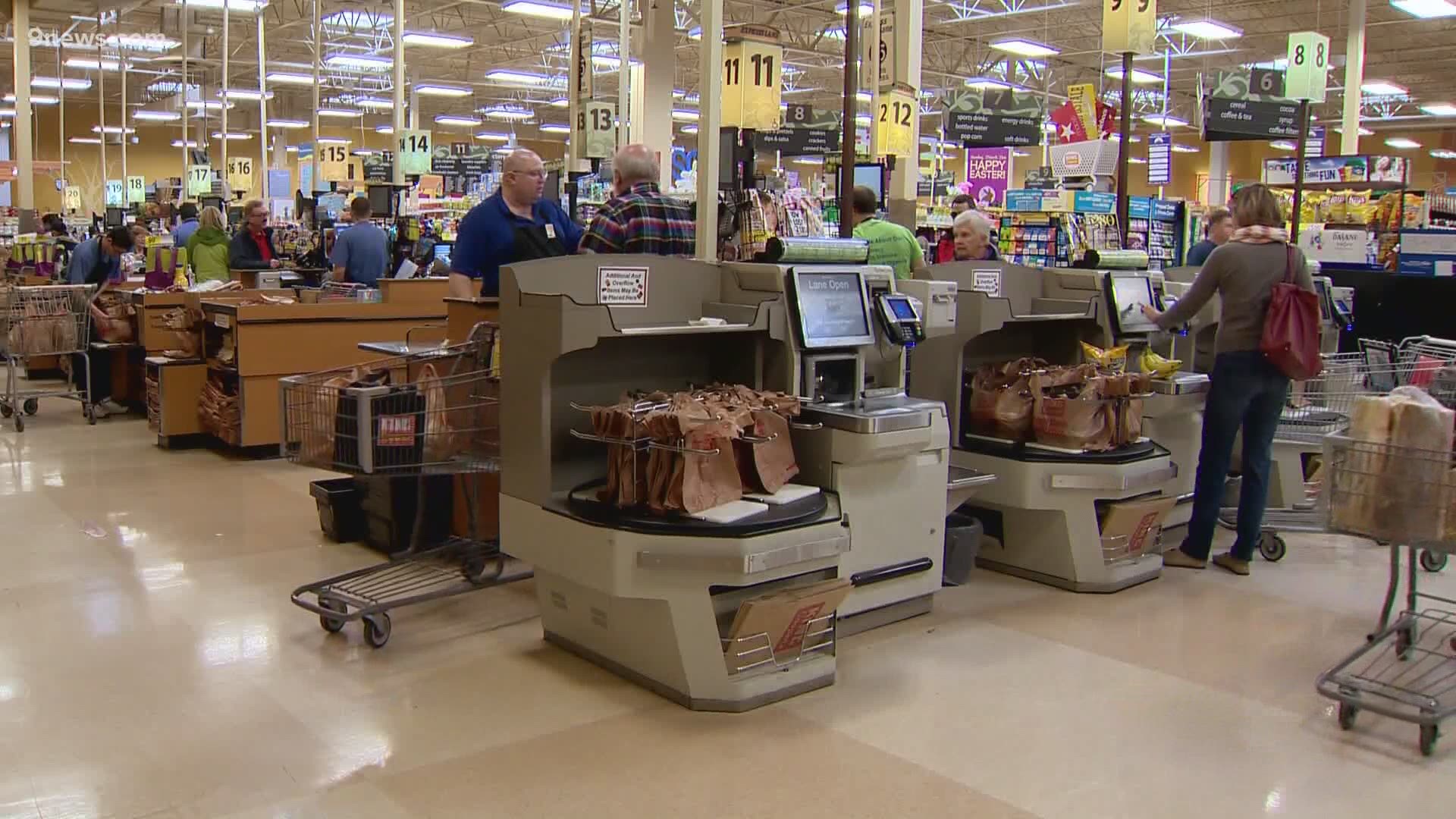DENVER — They're an added layer over our skin and a barrier meant to keep unwanted germs off your hands.
But, public health groups like the Centers for Disease Control and Prevention (CDC) and the World Health Organization (WHO) have not yet added wearing gloves to places like grocery stores to their list of recommendations for slowing the spread of COVID-19.
Doctors say there is a right way to wear gloves, but most people aren't doing it. And if it's not being done right, it's better just to scrap them altogether and stick to regular hand washing and sanitizing.
"The problem is that you're touching everything," said Dr. Michelle Barron, the medical director of Infection Prevention and Control at UCHealth's University of Colorado Hospital.
Barron and 9Health Expert Dr. Payal Kohli said one of the biggest risks with gloves is the false sense of security they give people.
"That feeling of, 'OK, my hands are covered, so I’m good and I can touch whatever I want’ not really recognizing that, ‘Oh, what’s on the surface of my hands can go to other locations,'" Barron said.
Kohli said gloves are most effective when they're for single-use and if people wash their hands before and after wearing them. She also said people still have to be extremely mindful to disinfect everything after they touch it.
"If you don’t have access to disposable gloves or readily reusable gloves, or you’re somebody who may not be able to access sanitizer for their hands immediately after then it’s important that you don’t wear gloves because they’re actually going to increase your risk," Kohli said.
That's because of cross-contamination.
"The world is not sterile," Barron said. "So, inadvertently by having gloves on when you’re driving or at the grocery store, everything you’re touching is now becoming contaminated on your hands and everything you touch the next time."
Sure, this can happen with bare hands, too. However, the difference is how often you wash or sanitize your hands versus your gloves.
Barron said doctors don't generally recommend sanitizing gloves because the alcohol-based sanitizers and even soap and water can damage the glove itself and cause "little micro-tears in your glove."
"If it's destroying that over time, you can imagine reusing gloves and sanitizing them may actually create defects in the surface of the glove which can increase your risk," Kohli said.
Kohli said another risk with using gloves is using the wrong type.
She said latex or rubber gloves actually offer a barrier of protection. However, gloves used for gardening or woolen gloves might actually trap particles, dirt and dust. Therefore, they can paradoxically increase your risk of spreading germs further.
"It’s better to not wear gloves than it is to wear gloves improperly because you’re increasing your risk," she said.
SUGGESTED VIDEOS | Coronavirus

